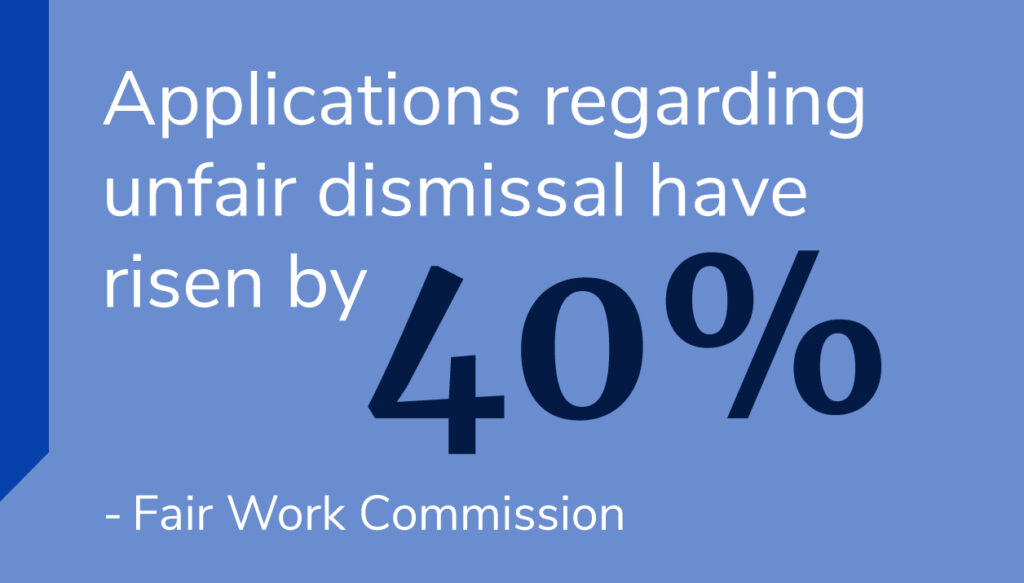Have you ever been excited to start a new job for the opportunities you have been given, only to start the job and realise that your employer is violating employment laws? Or, have you or a loved one ever experienced unfair dismissal in the workplace?
This article will bolster your knowledge of employment law, covering topics and things you may not have known. Employment law is a complex area of law, although it is important for both employers and employees to understand the basics and navigate the world of employment law to ensure everybody’s rights are protected. So, let’s dive in and explore some of the key concepts and rights and responsibilities in employment law.
Employment Law
You may be thinking, what is employment law and what does it cover? Employment law specifies the extent of limitations regarding relationships between employers and employees. Essentially, employment law is in place to protect employees and employers in the workplace.
As a whole, employment law covers a range of areas to ensure everyone is treated fairly in the workplace. These areas include working conditions, wages, dismissals and discrimination around sexuality, age, sex and race. Over time, employment laws have been amended to accommodate changes and protect employers and employees in the workplace. One of the most recent amendments was made at the beginning of March 2023 to increase sexual harassment protection in the workplace.

Employee Rights and Responsibilities
No matter what an employee’s salary and job title are, they all have rights within the workplace. The Fair Work Act works to protect employees rights as legislation covers aspects from discrimination against race, sex, pregnancy, marital status, physical or mental disability, family or carer’s responsibility, age, sexuality and nationality.
As a whole, employment law protects an employee by:
- Be treated fairly and equally in the workplace
- Allowed to access leave entitlements
- Be informed of their rights and responsibilities within the workplace
- Allowed breaks for meals
- Allowed notice periods in the event of dismissal
- Work in a safe environment

The Fair Work Ombudsman highlights entitlements within the workplace in your award or enterprise agreement. If you are hesitant about your entitlements, do look into your agreement and don’t hesitate to contact the Employment Lawyers at McDonnell Schroder to assist you with your queries.
Employer Rights and Responsibilities
Employers hold the responsibility to comply with Australian employment law. The main sources of employment law in Australia are legislation (federal, state and territory laws), industrial instruments and the common law.
There are many responsibilities employers have within the workplace, including:
- Provide a safe work environment
- Inform employees of their rights and responsibilities
- Report any workplace incidents and injuries to Safe Work Australia
- Provide employees with the required payment and entitlements
- Protect employees from workplace discrimination, bullying and sexual harassment
- Meet all first aid requirements
Issues Under Employment Law
There are many issues under employment law that refer to matters relating to minimum wage and minimum working age, wage theft, rights and responsibilities in the workplace, discrimination and wrongful termination or unfair dismissal.
Have you ever been dismissed from a job in a way that was unfair? Unfair dismissal or employment termination refers to when an employee has been terminated from the workplace or has been forced to resign due to something your employer has done.
If you can prove that your employment dismissal was unreasonable, unjust, unfair and not a case of genuine redundancy, it may be classified as unfair dismissal. From here, you may wish to submit an application about the matter. If you are considering lodging an application following an unfair dismissal, it is important to lodge it within 21 days of your employment termination or resignation. It is important to note that you must have been employed for 6 months before you are eligible to apply, and 12 months for a small business.
Unfortunately, cases of unfair dismissal have risen in the last couple of years, as according to the Fair Work Commission, applications regarding unfair dismissal have risen by 40% as a result of the pandemic. If you are unsure about your workers rights and responsibilities, reach out to the team at McDonnell Schroder who can assist you with your workplace concerns.

Discrimination Laws and Workplace Legislation
In relation to employment law, there are several discrimination laws and workplace legislation to cover employees and employers in the workplace:

The Fair Work Act 2009 is the most commonly known legislation under employment law in Australia. This legislation works to establish the boundaries between employers and employees alongside allowing a safety net of minimum entitlements regarding working arrangements, pay and employment conditions.
Employment Lawyers and Legal Requirements
Have you been wondering why it is best to seek the services of an employment lawyer? It is important not to face issues within your workplace alone. An employment lawyer can assist you are facing issues regarding legal requirements being met within your workplace. If you have questions about an employee or employer fulfilling their obligations within the workplace, the team of employment lawyers at McDonnell Schroder are here to help!
Our team can assist you by providing the information that is relevant to your case in order to provide you with your options. From here, our lawyers can help you along the process whichever road you choose to take.
Employment Rights and Responsibilities
Employment rights and responsibilities can be difficult to understand when you are unsure of where to begin if you believe you have been unfairly treated or discriminated against. This is why the team of Employment Lawyers at McDonnell Schroder are here to help!
Our team have extensive knowledge and experience within the employment law sector to assist you in all aspects from understanding your rights with the Fair Work Act 2009 through to applying due to an unfair dismissal.





